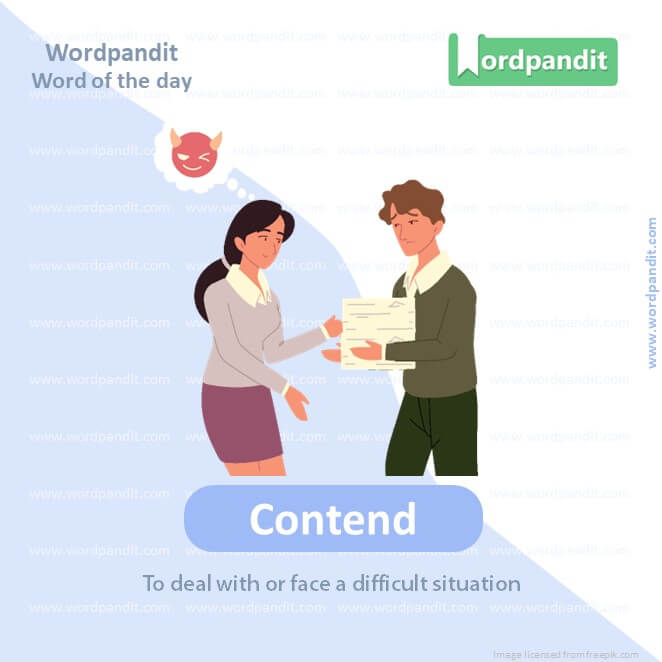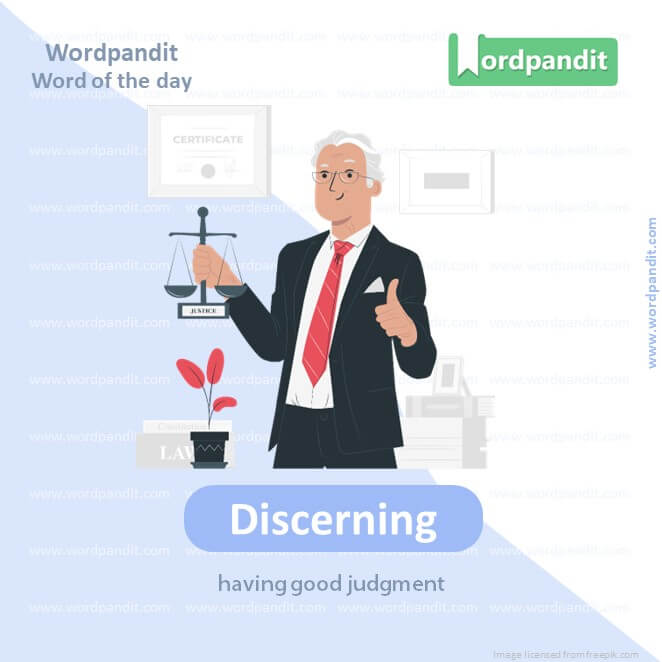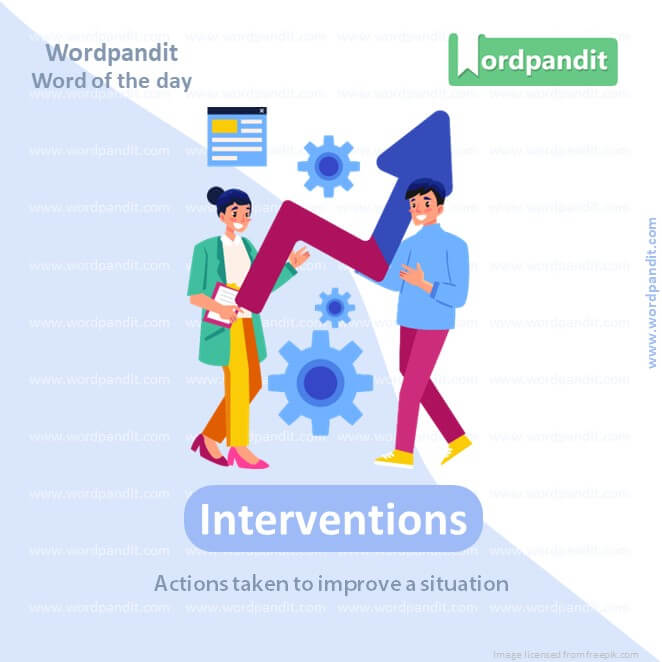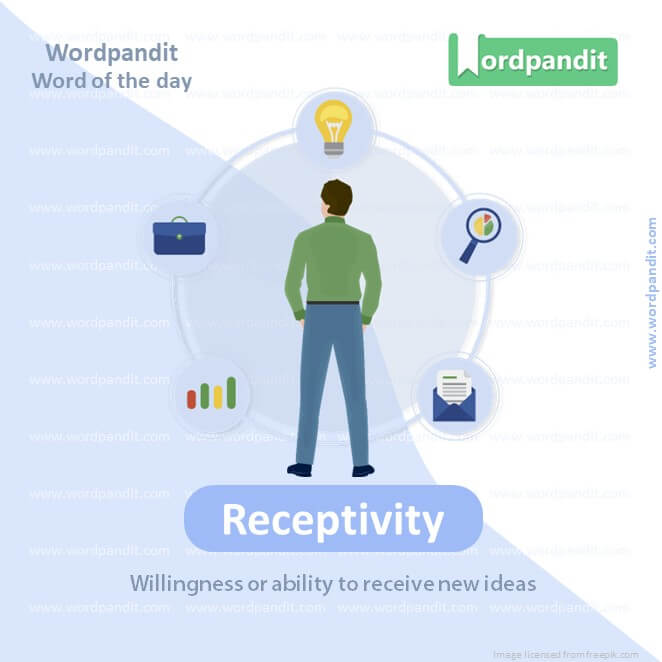Daily Vocabulary Words: List of Daily Used Words in Leading International Newspapers
Hi there. Welcome to this special section @ Wordpandit.
Our endeavour here is very simple: to highlight important daily vocabulary words, which you would come across in leading newspapers in the country. We have included the following newspapers in our selection:
• The New York Times
• The Washington Post
• Scientific American
• BBC
• The Guardian
• Psychology Today
• Wall Street Journal
• The Economist
We are putting in extensive work for developing your vocabulary. All you have got to do is be regular with this section and check out this post on a daily basis. This is your repository of words that are commonly used and essentially, we are posting a list of daily used words. Hence, this has significant practical application as it teaches you words that are used commonly in leading publications mentioned above.
Visit the website daily to learn words from leading international newspapers.

WORD-1: CONTEND
CONTEXT: Last week prospect, Chelsea football club had to contend with not only their opponent’s fierce defense, but also some questionable refereeing decisions.
SOURCE: The Guardian
EXPLANATORY PARAGRAPH: Contend is like when you’re in a race and trying your best to win. Maybe you’re racing with your best friend to see who can clean up their room the fastest, you’re both contending with each other to win.
MEANING: To deal with or face a difficult situation (verb).
PRONUNCIATION: kuhn – tend
SYNONYMS: Compete, argue, assert, dispute, vie, strive, contest
USAGE EXAMPLE:
1. The two teams will contend for the championship this weekend.
2. He had to contend with his rival for the top position in the class.
3. They contended that the proposed law was not constitutional.
4. The children contended for their parent’s attention.

WORD-2: DISCERNING
CONTEXT: On the financial markets today, a discerning investor needed to filter through the noise of conflicting reports about potential tech bubble 2.0.
SOURCE: The Economist
EXPLANATORY PARAGRAPH: Discerning is like when you are being very careful to choose the best thing. Like when you’re at an ice-cream store, and you choose the tastiest looking ice-cream after watching and thinking about all of them.
MEANING: having good judgment (adjective).
PRONUNCIATION: dih – zurn – ing
SYNONYMS: Perceptive, critical, discriminating, judicious, selective, sensitive, shrewd
USAGE EXAMPLE:
1. As a discerning shopper, she spends time comparing prices before buying.
2. He is discerning in choosing friends.
3. The discerning critic could see the true depth of her performance.
4. Discerning consumers are choosing healthier options.

WORD-3: INTERVENTIONS
CONTEXT: The recent pandemic has highlighted the importance of global health interventions providing effective measures against unprecedented challenges.
SOURCE: Scientific American
EXPLANATORY PARAGRAPH: Interventions are like when you see your little brother about to touch something hot and you quickly stop him. You’ve helped or intervened to keep him safe.
MEANING: Actions taken to improve a situation (noun).
PRONUNCIATION: in – tur – ven – shuns
SYNONYMS: Involvement, interference, intrusion, mediation, intercession, arbitration, action
USAGE EXAMPLE:
1. The government’s intervention in the strike was decisive.
2. Early intervention can often prevent problems from escalating.
3. He praised the UN’s military intervention in the conflict.
4. The educational intervention helped to improve the student’s performance.

WORD-4: RECEPTIVITY
CONTEXT: Receptivity to virtual learning methodologies has significantly increased as a result of the rapid changes enforced by the pandemic.
SOURCE: The New York Times
EXPLANATORY PARAGRAPH: Receptivity is like when you’re open to listen to a new story from your mommy or daddy, even if it sounds a little strange at first. It means you’re open or ready to accept new ideas or suggestions.
MEANING: Willingness or ability to receive new ideas (noun).
PRONUNCIATION: reh – cep – tiv – ity
SYNONYMS: Openness, receptiveness, accessibility, adaptability, flexibility, open-mindedness, acceptance
USAGE EXAMPLE:
1. The receptivity of the audience pleased the speaker.
2. His idea met with a high degree of receptivity.
3. Receptivity to new ideas is a key trait in innovation.
4. The student showed great receptivity to the teacher’s suggestions.

WORD-5: UBIQUITY
CONTEXT: With the ubiquity of the internet, it is virtually impossible to find a place on earth where one cannot access information at the click of a button.
SOURCE: BBC
EXPLANATORY PARAGRAPH: Ubiquity means when something is everywhere you go. Like how you see trees when you’re at the park, in your school yard, and even outside your house. Trees are ubiquitous; they are everywhere!
MEANING: The state of being everywhere at once (noun).
PRONUNCIATION: yoo – bik – wi – tee
SYNONYMS: Omnipresence, pervasiveness, prevalence, universality, commonness, omnipresence
USAGE EXAMPLE:
1. The ubiquity of smart phones has drastically changed our way of life.
2. Trees are marked by their ubiquity in the city park.
3. The ubiquity of fast food chains in America is often criticized.
4. We were amazed by the ubiquity of the brand’s advertisement.
WORD-6: CRED
CONTEXT: The company no longer holds the same ‘tech cred’ since it was discovered they poorly handled user data.
SOURCE: The Guardian
EXPLANATORY PARAGRAPH: Imagine you are the best at building a sandcastle in your class, and everyone knows it! That makes you have “cred” people believe in your ability to do something really well.
MEANING: Reputation or influence due to one’s credibility or reliability (noun).
PRONUNCIATION: kred
SYNONYMS: Prestige, status, standing, esteem, repute, reputation
USAGE EXAMPLE:
1. He’s got plenty of street cred, everyone respects him in the neighborhood.
2. That fashion brand has lost its cred among its consumer base.
3. He’s the chef with the most cred in this city.
4. She’s got serious cred as a digital artist.
WORD-7: LASHING
CONTEXT: Lashing out at his team’s poor performance, the coach announced a radical overhaul of their training regimen.
SOURCE: The Washington Post
EXPLANATORY PARAGRAPH: Lashing can mean when you’re really, really angry and you yell at someone or something. Like if your friend broke your toy by mistake and you upsetly tell them off.
MEANING: A severe scolding or verbal castigation (noun).
PRONUNCIATION: lash – ing
SYNONYMS: Rebuke, scolding, critique, telling-off, reprimand, admonishment
USAGE EXAMPLE:
1. He received a lashing from his coach for his poor performance.
2. The teacher gave a lashing to the students for their misbehavior.
3. He gave a lashing to the computer when it shut down unexpectedly.
4. They endured a public lashing for their controversial comments.
WORD-8: REPRESSION
CONTEXT: Recent protests have arisen against the government’s repression of free speech and political dissent.
SOURCE: Al Jazeera
EXPLANATORY PARAGRAPH: Repression is like when you want to giggle during a quiet time but need to hold it in. It’s when you or someone else keeps something down or pushes it away.
MEANING: The action of forcibly subduing something or someone, or state of being subdued (noun).
PRONUNCIATION: reh – preh – shun
SYNONYMS: Restraint, suppression, subduing, quelling, stifling, quashing
USAGE EXAMPLE:
1. The government’s repression of the protest was highly criticized.
2. His memories of the accident remained in repression for years.
3. The repression of her true feelings led to emotional problems.
4. The human rights group reported several instances of political repression.
WORD-9: JAUNTY
CONTEXT: With a jaunty walk and irresistible charm, the young actor soon became a fan favorite on the popular TV show.
SOURCE: The New York Times
EXPLANATORY PARAGRAPH: Jaunty is when you’re feeling happy and confident, like when you’re wearing your favorite superhero costume and you just feel so full of energy and fun.
MEANING: Having or expressing a lively, cheerful, and confident manner (adjective).
PRONUNCIATION: jawn – tee
SYNONYMS: Cheerful, lively, breezy, buoyant, sprightly, upbeat, sparkling
USAGE EXAMPLE:
1. She wore a jaunty hat to the picnic.
2. He had a jaunty step as he walked onto the stage.
3. Her jaunty attitude made her popular at parties.
4. He whistled a jaunty tune as he walked home.
WORD-10: COMPLACENT
CONTEXT: The sprightly yet complacent attitude of the city’s residents was soon to be challenged by the unexpected economic recession.
SOURCE: The Economist
EXPLANATORY PARAGRAPH: Complacent is like when you’re sitting on your couch on a very sunny day and even though you could go play outside, you’re just too comfortable and don’t feel like moving. It’s when you’re too satisfied with yourself and don’t want to try harder.
MEANING: Showing uncritical satisfaction with oneself or one’s achievements (adjective).
PRONUNCIATION: com – play – sent
SYNONYMS: Self-satisfied, smug, self-contented, pleased, content, unconcerned
USAGE EXAMPLE:
1. After the success of his first book, he became complacent.
2. Her complacent attitude was seen as a lack of ambition.
3. He’s been complacent about his job security.
4. It’s easy to become complacent when you’re in a comfortable situation.
Vocabulary Meaning
In the ocean of language learning, ‘vocabulary meaning’ is akin to the colorful coral reefs that add depth and vibrancy to communication. Yet, infusing our interactions with this vibrancy is often a challenge for many language learners. The crux lies in effectively deciphering and employing the ‘vocabulary meaning’.
Learning ‘vocabulary meaning’ isn’t about merely gluing words to their definitions. It’s about forming a deep understanding and connection with these words that transcends rote learning. To gain a comprehensive grasp of ‘vocabulary meaning’, one needs to navigate beyond textbook definitions and commit to exploiting diversified resources such as novels, films, music, articles, and digital content. This allows one to encounter vocabulary in a variety of contexts and actual usage, giving deeper insight into their meaning.
However, understanding ‘vocabulary meaning’ involves another essential aspect—memory retention. Techniques such as spaced repetition and the Leitner System offer effective methodologies to maintain and consolidate the ‘vocabulary meaning’. Additionally, leveraging mnemonic strategies can help etch words into your memory by linking them with unique stories or imagery that are personal and easily recallable.
Another way of mastering ‘vocabulary meaning’ is by immersing yourself in the language. Engage in regular conversations with native speakers if possible or utilize language exchange platforms to practice your skills. This not only bolsters your understanding of how the vocabulary is used but also helps articulate the ‘vocabulary meaning’ in the societal and cultural contexts.
In conclusion, gaining a robust grasp of ‘vocabulary meaning’ is a journey rather than an end goal. It requires dedication, perseverance and most importantly, a multi-faceted approach that includes diversified resources, effective memory strategies, and real-life application. With these strategies in place, the depths of ‘vocabulary meaning’ are no longer daunting but become an enchanting exploration of language.











